Ivermectin is a common medication know to be used to kill many different types of parasites. It’s most currently used in monthly heartworm prevention. It has also been used to treat ear mites as well as hair mites, which can cause mange. It is used to treat some internal parasites as well, but is not use predominantly for this. “Additionally, certain dogs are genetically hypersensitive to the medication. In these dogs, ivermectin can pass directly to the brain and be toxic or even lethal. Sensitivity to the drug can also be seen in dogs or puppies that have overdosed on a similar medication in the past.” (Pet Health Network)
A genetic sensitivity to ivermectin can be seen in several breeds, but is more commonly seen in the following breeds:
- Collie
- Old English sheepdog
- Shetland sheepdog (Sheltie)
- Australian shepherd
- German shepherd
- Longhaired whippet
- Silken windhound
- Border collie
- Dogs of mixed breeds that include herding breeds
“This genetic sensitivity is due to a mutation in what is called the MDR1 gene. This mutant gene may make the dog more sensitive to several other medications as well. Not all individual dogs in the breeds listed above carry the mutant gene. The only way to know if an individual dog has the mutant MDR1 gene is through testing. To do the test, cells are scraped from the inside of the dog’s cheek and sent to a laboratory for genetic testing. Talk to your veterinarian if you are interested in having your dog tested.” (Pet Health Network)
Symptoms
If your dog has ivermectin toxicity, you may see any of the following symptoms:
- Lethargy
- Depression
- Drooling
- Vomiting
- Dilated pupils
- Loss of appetite
- Disorientation
- Tremors/Seizures
- Blindness
- Trouble standing
- Slow heartbeat
- Difficulty breathing
- Coma
- Siezures
Ivermectin toxicity can’t be reversed, unfortunately. If the drug was given within the past 4 – 6 hours, you or your veterinarian can induce vomiting and/or give your dog activated charcoal to help minimize the amount of ivermectin that is absorbed.
Additionally, your veterinarian may perform the following tests:
- Chemistry tests to evaluate kidney, liver, and pancreatic function, as well as sugar levels
- A complete blood count to rule out blood-related conditions
- Electrolyte tests to ensure your dog isn’t dehydrated or suffering from an electrolyte imbalance
- How Ivermectin works:
As of late, many new all-natural, effective, alternative medications have come to the market that have shown to be very powerful at preventing and treating Heartworm. One such product is called Amber Natrualz “Clean Heart” HWF coming soon. We will give you details as soon as it is released!!!
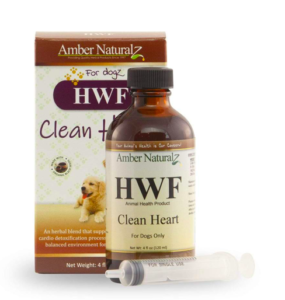
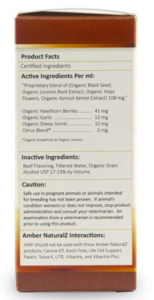
The ingredients included are:
-Organic Hawthorne Berries: These amazing berries support the circulatory system, strengthen the heart, tone the heart, feed the adrenals, cleanse arteries, and has been known to assist in balancing blood pressure.
-Organic Garlic- Repels mosquitoes that might be carrying heartworms with them. Its pungent taste and smell is guaranteed to ward off those flying insects. So, in essence, garlic may be able to help you prevent heartworms but not get rid of them. Garlic also has a catch: it is poisonous to heartworms.
-Organic Sheep Sorrel- Contains inulin, amino acids, sulphur, zinc, potassium, and phosphorus, vitamin A, C, calcium, magnesium, manganese, selenium, germanium and B-complex vitamins. These all help detoxify the body, support the immune system, and have been known to improve circulation.
-Some citrus ingredients such as grapefruit or lemons-Citrus ingredients, such as kernnels, have been known to support heart functions and a healthier heart promotes proper pH balance, helping the body neutralize mild cases of acidity in the blood.


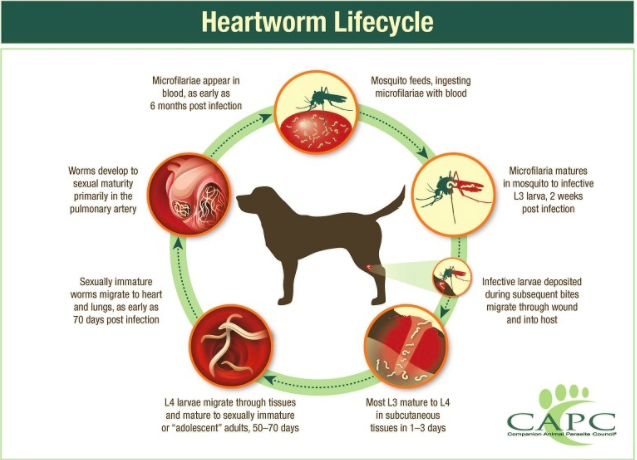
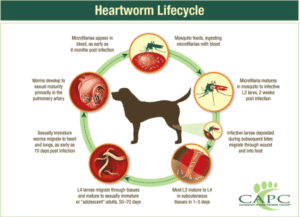







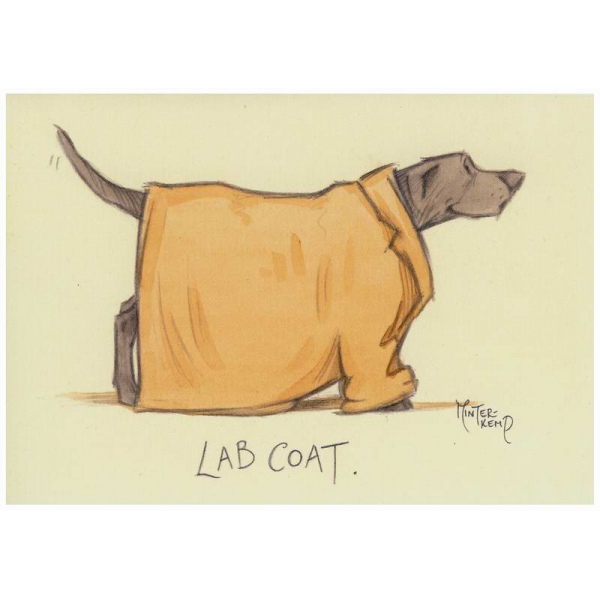



Leave a comment